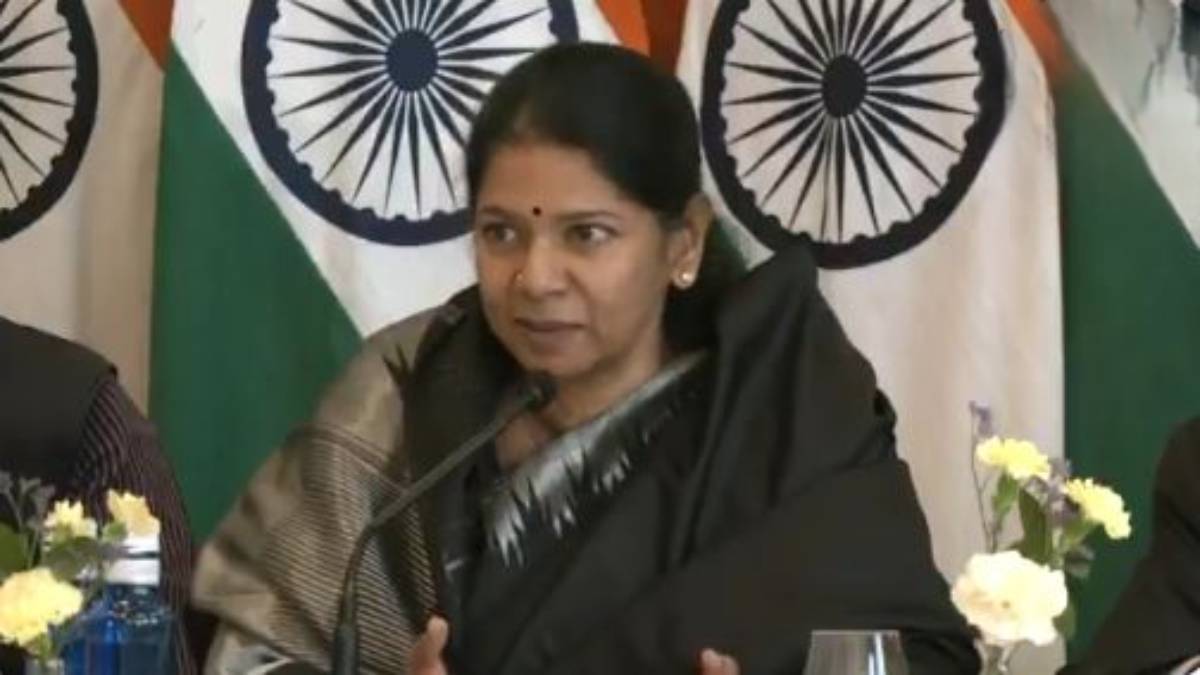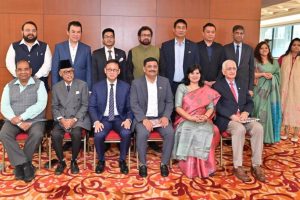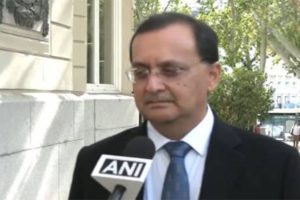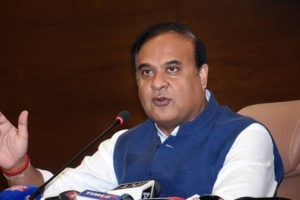A cross-party Indian parliamentary delegation visiting Spain has delivered a clear and assertive message on India-Pakistan relations and global terrorism: peace cannot be achieved through mere diplomacy or symbolic dialogue when terrorism is state-sponsored and sustained.
DMK MP Kanimozhi underscored the complexity of dealing with Pakistan, dismissing simplistic notions of resolution through casual dialogue. “Some nations think conflicts can be solved just by inviting Pakistan for a coffee and a conversation. It’s far more complicated than that,” she stated, pointing to the deep-rooted and multi-layered challenges India faces in its western neighborhood.
AAP MP Dr. Ashok Kumar Mittal reinforced this stance by highlighting Pakistan’s global footprint in terror networks. “Be it the UK or France, Pakistan is involved in terrorist incidents everywhere. Yet, Prime Minister Modi advocates peace and global harmony through Vasudhaiva Kutumbakam. We seek growth not just for ourselves, but for all,” he said, calling for unified global action against terrorism.
From the opposition bench, Samajwadi Party MP Rajeev Rai cited historical examples of Pakistani aggression to explain the long-standing mistrust. “Pakistan attacked Kashmir in 1947, then India in 1965, and committed horrific atrocities in what is now Bangladesh. These events reflect a pattern that cannot be ignored,” he stated.
BJP MP and retired Army officer Capt Brijesh Chowta took aim at the structural opacity of Pakistan’s governance, questioning the practicality of negotiations. “Who exactly should we talk to in Pakistan? The elected government? The army? Or the Islamic clergy? The world must recognise that it is state-sponsored terrorism that fuels the unrest,” he warned, urging other nations to stop advising India to pursue unproductive dialogue.
RJD MP Prem Chand Gupta addressed claims by former US President Donald Trump about mediating a ceasefire, clarifying that the ceasefire agreement between India and Pakistan was strictly bilateral. “The Pakistani DGMO called our DGMO and requested a ceasefire, which we accepted in good faith. No external pressure was involved,” Gupta said, emphasizing India’s independent decision-making in matters of national security.
Senator Robert Masih Nahar, a Gurdaspur-born parliamentarian now representing Barcelona, praised the Indian government’s bold response through Operation Sindoor, a targeted military strike launched on May 7. “We tolerated enough. A strong message was overdue. Now, terrorist actors and their backers know India will not stay silent. Spain stands with India in the fight against terrorism,” he stated.
Following the April 22 Pahalgam terror attack, in which 26 people lost their lives, the Indian government launched Operation Sindoor, striking terror infrastructure across Pakistan and Pakistan-occupied Jammu and Kashmir. The operation eliminated over 100 militants from groups like Jaish-e-Mohammed, Lashkar-e-Taiba, and Hizbul Mujahideen.
To bolster global awareness and support, the Modi government has dispatched seven multi-party delegations to brief international partners on Pakistan’s continued role in sponsoring cross-border terrorism. These teams are tasked with reinforcing India’s message of zero tolerance for terrorism in all its forms.
India’s diplomatic offensive underscores a growing consensus among its leaders: while peace remains the ultimate goal, it cannot come at the cost of national security. The world must understand that resolving the India-Pakistan conflict demands more than handshakes and hollow talks—it requires a firm, united stand against terrorism.





